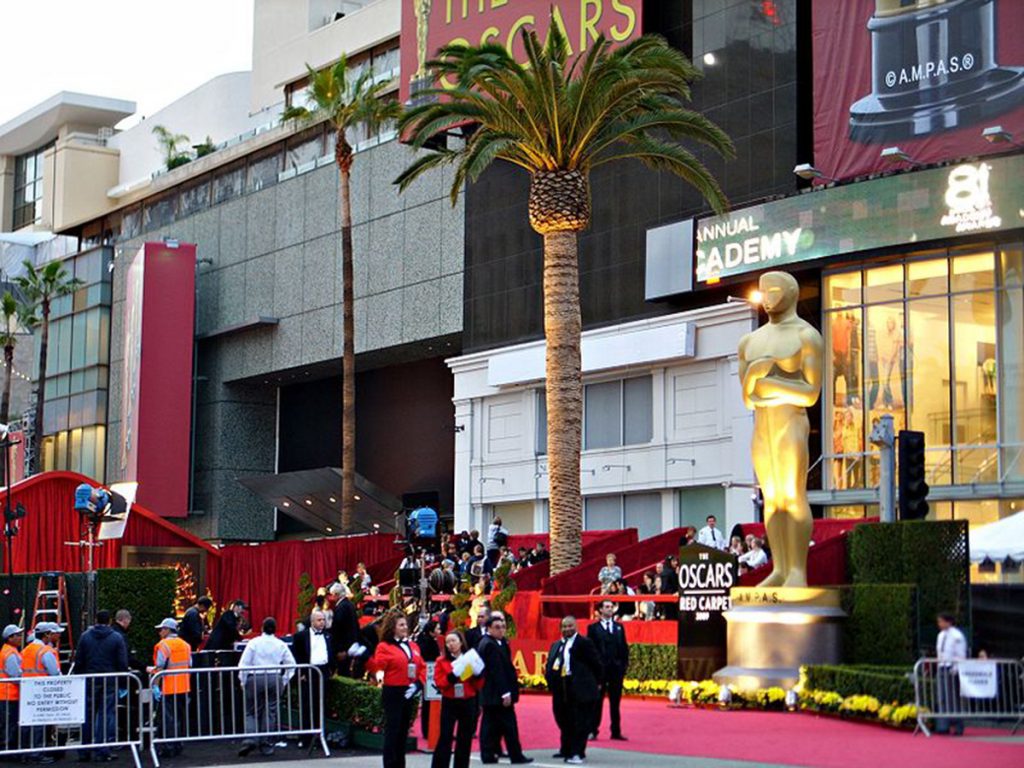‘Barbie’ Oscar Snubs: Sexism, Genre-ism, or Both?

When Greta Gerwig and Margot Robbie were not nominated for Academy Awards for Best Director and Best Actress, respectively, for Barbie, movie goers and cinephiles went into an uproar. Many say that it’s part and parcel of the Oscars’ gender inequity.
Years before Gerwig and Robbie brought Mattel’s doll to life, Communication Studies Senior Executive-in-Residence Ken Grout and Senior Lecturer Owen Eagan, co-authored a study, Oscar Is a Man: Sexism and the Academy Awards.
Grout said he set out to answer the question about Oscars sexism specifically regarding the Best Picture category. He looked to see how many Best Picture winners starred the winners of Best Actor or Best Actress.
“In the early days of the Academy Awards, in the late ‘20s, early ‘30s, into the mid ‘40s, there was a relative equity between [Best Actresses and Best Actors who starred in the year’s Best Pictures],” said Grout.
Louise Rainer won Best Actress for Best Picture winner The Great Ziegfeld in 1936. Vivien Leigh won Best Actress for playing Scarlet O’Hara in Gone with the Wind, which won Best Picture in 1939. Greer Garson won Best Actress for Best Picture winner Mrs. Miniver in 1942.
After Mrs. Miniver, however, it would be 35 years before a Best Actress winner carried the the Best Picture winner, when Diane Keaton won for Annie Hall in 1977. Two years earlier, Best Picture winner One Flew Over the Cuckoo’s Nest yielded both the Best Actress and Best Actor winners, with Louise Fletcher and Jack Nicolson.

In those 35 years, 15 Best Actor winners starred in Best Picture winners. Statistically, from the 1927-28 season through 2019, Best Picture nominated films included 124 nominated performances by men, but only 72 for women.
“Two things happened – World War II ended and with that came the stories of battles, and those were ‘man stories’ in those times,” said Grout.
“And the other thing that happened was the dissolution of the studio system. Studios no longer had as big a stake in supporting all of the projects unless they were directly involved with the studio,” he said.
Grout and Eagan’s study didn’t look at the Golden Globes, SAG Awards, etc., because the Oscars are considered the pinnacle of movie awards.
Since 1977, it’s been more even, and actually, in two of the last three years, the Best Picture included the Best Actress winners.
Barbie Rebuffed in 2023?
Greta Gerwig didn’t get nominated for directing the worldwide smash hit Barbie, and actress Margot Robbie didn’t get a nod for Best Actress, though Ryan Gosling got nominated for portraying Ken. (America Ferrara did get a Supporting Actress nomination for playing Gloria, Gerwig was nominated for Adapted Screenplay, and Robbie, as a producer, got the Best Picture nod). Considering the movie is about the patriarchy, some people believe Gerwig and Robbie not getting a nod is the epitome of Oscar sexism.
But did it not get nominated because it was female-driven, or because it’s genre?
Grout and Eagan surmised that the Academy of Motion Picture Arts and Sciences (AMPAS), looks at movies through a lens that focuses on drama. That’s why you don’t see blockbusters, comic book movies, horror flicks, or comedies, commonly getting nominated for acting and directing awards.
Grout said he’d argue that Toni Collette’s work in Hereditary, and Lupita Nyong’o’s performance in Us, both in 2019, were outstanding and deserved nominations for Best Actress. But they were starring in horror films.
“They were previous nominees, and they weren’t not nominated because their performances weren’t great. It was because they were in the wrong genre,” said Grout. “Why do you think it’s such a big deal that Christopher Nolan is nominated for Best Director for Oppenheimer? He didn’t get nominated for Inception or The Dark Knight.”
Grout referred to it as the Jaws syndrome. Steven Spielberg didn’t get nominated for Best Director in the 1975 hit. In 1982, he was nominated for E.T., but lost. He finally won his first Best Director in 1993 for Schindler’s List, the story of a German industrialist who saved more than a thousand Jews from Nazi capture by hiring them in his factories.
“It’s not about an alien riding a bike with Reese’s [Pieces], or getting chased by a boulder or a big shark. It’s about something much more serious, obviously,” said Grout.
Grout said the irony of Barbie not being nominated is that it’s essentially the plot of the movie.
“It’s art imitating life in the worst way. Greta Gerwig not nominated for Best Director – does sexism play a role in that? You bet it does,” said Grout. “But there is a woman nominated for Best Director. Justine Triet for Anatomy of a Fall.”
Anatomy of a Fall is more of a classic Oscar film, said Grout.
“Barbie is a story that deserves to be told, but is it a story the Academy supports being told? That’s the bigger issue. It’s about the type of film and the type of story,” said Grout.
“Whether you like the film Barbie or not, it is difficult to argue it is not creatively conceived, masterfully written with a wonderful screenplay, excellently directed, and wonderfully acted.”
Other Oscar categories are also male-dominated, said Grout.
“[The study is] focused on acting, but I couldn’t help but branch off. It’s a guy’s game behind the camera and technical categories. Even … production design and music composition tend to be heavily male driven,” said Grout.
The Academy has also been called out for its sexism. In 2017, when accepting the Oscar for Best Actress for her role in Three Billboards Outside Ebbing, Missouri, Frances McDormand asked all female nominees in all categories to stand up.
“It was uplifting and revelatory,” said Grout. “That year, Rachel Morrison became the first woman to ever be nominated for cinematography for Mudbound.”
Looking at Barbie, Grout said it’s important to note that there are two different voting blocs for Best Director and Best Actress. Directors vote for the former, and actors vote for the latter.
“That’s why the discussion of sexism lives more in the Best Director race, and in what stories producers choose to tell and give laudatory recognition to,” said Grout.
Categories